Iran Summons Russian Envoy For Support Of UAE Claims On Islands
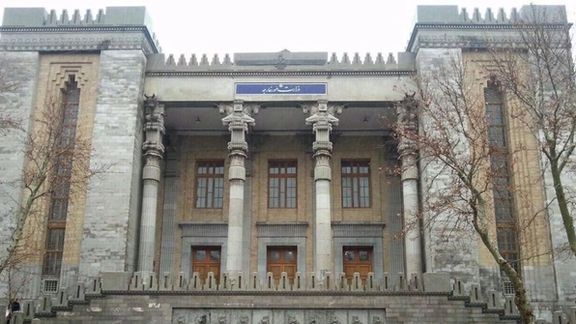
Iran's foreign ministry summoned the Russian envoy to Tehran over Moscow's support for the United Arab Emirates' claim over three Persian Gulf islands.

Iran's foreign ministry summoned the Russian envoy to Tehran over Moscow's support for the United Arab Emirates' claim over three Persian Gulf islands.
In a statement issued on Wednesday, the Iranian foreign ministry said Tehran protested Russia's challenging of Iran’s ownership of Greater Tunb, Lesser Tunb, and Abu Musa islands in the Persian Gulf asking Russia to correct its position on the issue.
In a joint Russia-GCC statement at the sixth joint ministerial meeting of the strategic dialogue between the Persian Gulf Cooperation Council (GCC) and the Russian Federation, held in Moscow on Monday, ministers affirmed their support for the United Arab Emirates which, like Iran, claims sovereignty over the islands.
The statement called for "bilateral negotiations or the International Court of Justice, in accordance with the rules of international law and the United Nations Charter, to resolve this issue in accordance with international legitimacy".
Iran's foreign ministry spokesperson Nasser Kanaani, on Tuesday rejected the claims, saying the islands “eternally belong to Iran and such statements are inconsistent with Iran’s friendly relations with its neighbors,” referring to the detente between Iran and its neighbors the UAE and Saudi Arabia.
The three Persian Gulf islands have historically been part of Iran, proof of which can be corroborated by historical and geographical documents. However, the United Arab Emirates has repeatedly laid claim to the islands, describing the situation as “the continued occupation by the Islamic Republic of Iran.”
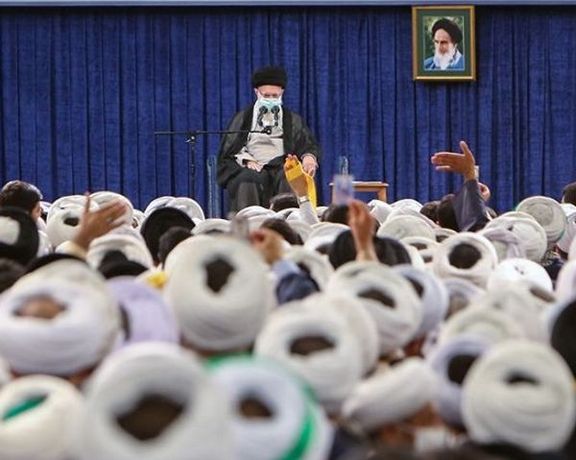
Despite evidence of the use of Iranian drones by the Russian army, Iran’s Supreme Leader holds American arms companies responsible for the continued war in Ukraine.
Despite Iran’s denials, numerous reports show that the Russian army has used hundreds of Iranian-made drones to bomb Ukraine's infrastructure and civilians.
However, in his meeting with seminary students and religious missionaries on Wednesday, Supreme Leader Ali Khamenei said: "They [the US] are ready to victimize a nation like the poor homeless nation of Ukraine, so that the pockets of the American arms companies will be filled," he said.
Elsewhere in his remarks, Khamenei said "the interests of Western arms production and sales companies lie in the continuation of the war in Ukraine."
Last week, a new report by two Russian investigative media revealed the preparations for the production of Shahed kamikaze drones in the territory of Tatarstan in western Russia.
The foreign and defense ministers of NATO members, in their numerous meetings, especially in recent months in Bucharest, Madrid and also at the Ramstein Air Base in Germany, asked Iran to refrain from delivering more weapons and drones to Russia.
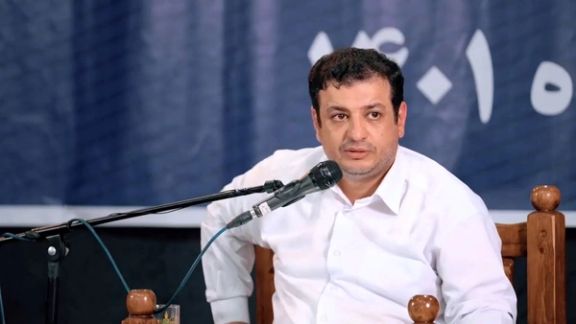
The ban on Iranian propagandist Ali-Akbar Raefipour leaving Saudi Arabia after the Hajj pilgrimage shows in spite of the recent detente between the two nations, tensions persist.
“Every Iranian who enters Saudi Arabia is terrified about what would happen to him," he said in a statement. "We fought an eight-year war with Iraq, but today millions of Iranians go to religious sites there with no complications. So, the governments of Iran and Saudi Arabia must resolve such issues as soon as possible.”
Unconfirmed reports say the hardline regime figure was arrested at Jeddah airport because of using a fake passport; however, in his statement released by the Masaf Institute, a religious, hardliner organization founded and directed by Raefipour and linked to the IRGC, he denied the claim as "rumors". "It must be resolved once and for all," he said.
Iran’s Foreign Ministry Spokesman Nasser Kanaani confirmed the ban on Monday, claiming Raefipour was not arrested, though he is unable to leave the country, and that Iran's embassy is trying to settle the problem.
In an audio file he released, Raefipour presented more conspiracy theories blaming “the Zionists and the enemies” for such “rumors”.
Hardliner Raefipour promotes apocalyptic views based on Shiite beliefs and the coming of promised savior Mahdi.
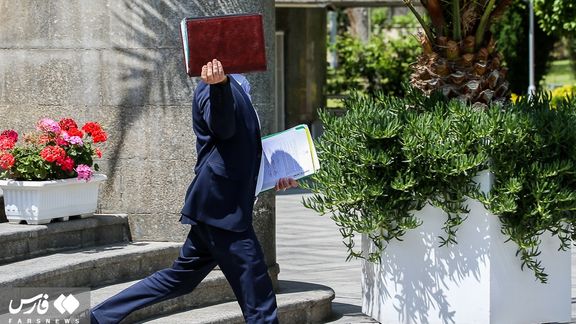
A moderate news website in Iran says the country's hardliners are going out of their way to send their supporters who are not qualified as ambassadors abroad.
In an article entitled "Ambassadorial positions under the hammer," Entekhab news website cited the recent appointment of midwife and city councilwoman Massoumeh Abad as Iran's ambassador to Finland as an example.
Entekhab stated that Abad's appointment undermined the long-standing principles observed in ambassadorial appointments. Many former diplomats and media outlets as well as social media users have lashed out at the Iranian Foreign Ministry for appointing a midwife as an ambassador.
According to Entekhab, the appointment disregarded the Foreign Ministry's stated policy of promoting "economic diplomacy," which aimed to send diplomats capable of expanding Iran's economic relations with other countries. Despite the sanctions imposed on Iran, the country is seeking ways to circumvent them and improve its struggling economy by expanding trade.
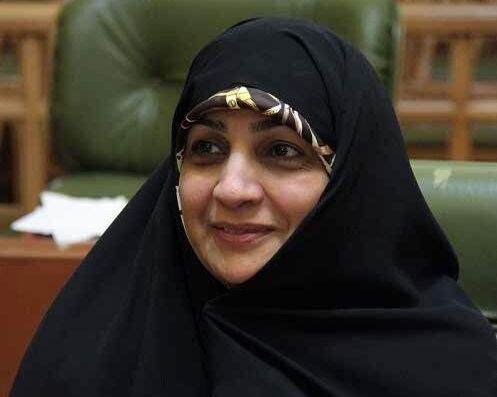
This situation is exacerbated by the fact that Tehran currently lacks ambassadors in major European capitals, including London, Paris, Berlin, and Stockholm. Entekhab highlighted this as evidence of the Foreign Ministry's lack of understanding regarding the importance of ambassadors during this critical period. Alternatively, it may reflect conflicts among different power centers and political factions in Iran, all vying for a share of influence, including control over Iran's embassies abroad.
The website argued that President Ebrahim Raisi's pledge to boost economic diplomacy could only be achieved by sending qualified diplomats abroad, well-versed in diplomatic knowledge and economic expertise. However, the reality has contradicted Raisi's declared ideals.
For over a year, President Raisi has faced extensive criticism for his handling of the economy, which has plunged further into crisis. He has been accused of mismanagement, appointing inappropriate individuals to top positions, and relying on false promises to buy himself more time.
For over a year, President Raisi has faced extensive criticism for his handling of the economy, which has plunged further into crisis. He has been accused of mismanagement, appointing inappropriate individuals to top positions, and relying on false promises to buy himself more time.
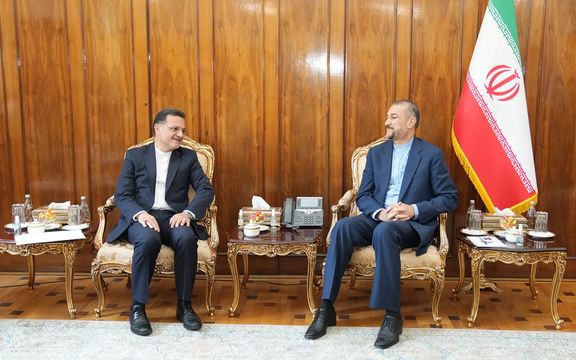
Mohsen Bakhtiar, Iran's new ambassador to Beijing, previously held a position in the Ministry of Energy, unrelated to diplomacy. The website also criticized Bakhtiar for lacking the necessary linguistic and diplomatic expertise required for such a significant role in a key country. His knowledge of foreign relations and ability to employ appropriate diplomatic tools are also questionable.
Entekhab further highlighted the appointment of former Central Bank Governor Ali Salehabadi as ambassador to Qatar, which was deemed even more perplexing than the other two appointments. This move seemed to be a mere face-saving measure for the former banking official who lost his position due to Raisi's impromptu decision. Raisi believed that replacing the central bank governor would solve Iran's economic problems.
By appointing an inexperienced individual as ambassador to a crucial region where diplomatic relations have recently gained momentum, the Foreign Ministry demonstrated a lack of understanding regarding Doha's significance in the nuclear negotiations and the restoration of Tehran's ties with Arab capitals.
Moreover, the absence of ambassadors in major European capitals indicates that the government fails to grasp the importance of those countries. Relations with European nations deteriorated during the recent nationwide protests in Iran, further isolating the Islamic Republic. Entekhab argued that by not dispatching ambassadors to these countries, Tehran has deprived itself of the leverage necessary to counter diplomatic and political pressures.
According to Entekhab, the failure to appoint chief diplomats to these European capitals has significantly diminished Iran's bargaining power in international relations.
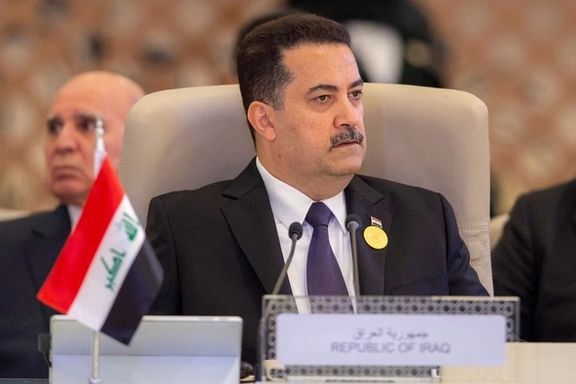
Iraq will begin trading crude oil for Iranian gas to end payment delays to Tehran due to the need for US approval, Prime Minister Mohammed Shia Sudani said Tuesday.
Sudani said Iran had cut gas exports to Iraq by more than 50% as of July 1 after Baghdad failed to secure US approval to disburse owed funds, but Tehran had now agreed to resume gas exports in exchange for crude oil.
The deal was reached during talks with an Iranian delegation that was in Baghdad since Saturday, Sudani said in a televised speech.
Iraq imports electricity and gas from Iran that total between a third and 40% of its power supply, especially crucial in sweltering summer months when temperatures can top 50 Celsius (122 Fahrenheit) and power consumption peaks.
Iraq has had trouble paying for those imports. It owes Iran around 11 billion euros ($12.1 billion) in outstanding debts, Sudani said, and struggles to pay due to US sanctions that only allow Iran to access funds to buy non-sanctioned goods, such as food and medicine.
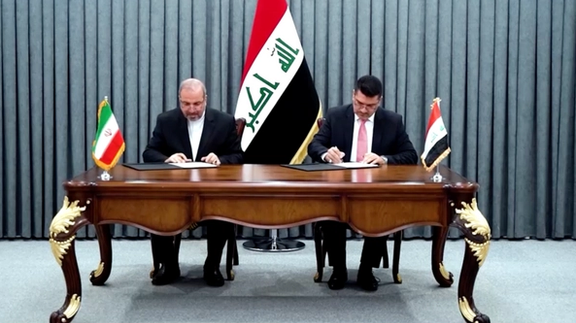
Even those procedures are complicated, and "contribute to unwanted delays in making the payments, and subsequently the funds are not paid to the Iranians", Farhad Alaaldin, foreign affairs adviser to the prime minister, told Reuters.
The United States agreed to the release of more than $2.7 of Iran’s funds in early June to be used for purchasing food and medicine. “Iran can only access its funds held in accounts for Iraq for humanitarian and other non-sanctionable transactions,” State Department spokesperson Matthew Miller confirmed on June 13.
By trading Iraqi crude for Iranian gas, Sudani said, Iraq would avoid rolling power cuts every summer while working to complete gas capture and extraction projects that would help make the country self-sufficient.
"We can't for the next two or three years come to citizens every summer and tell them: 'They stopped the gas, they started the gas'," he said.
A State Department spokesperson declined comment on the reported barter deal between Iraq and Iran and did not address whether such an arrangement might violate US sanctions.
"There has been no change in US policy towards Iran or Iraq, and the Biden Administration continues to implement all US sanctions on Iran," the spokesperson said, adding that Washington "strongly supports Iraq's path to energy autonomy."
Henry Rome, an analyst with the Washington Institute for Near East Policy think tank, said a barter pact was unlikely to stop Iran from continuing to seek hard currency from Iraq.
"I am not convinced that a pure barter arrangement as described by Sudani is satisfactory for Iran, given its need for hard currency," he said. "Even if this arrangement is implemented, it would likely not obviate Iran’s pursuit of the billions of dollars still held in Iraqi accounts."
Iran is also under US oil export sanctions and although it ships around 1.5 million barrels mostly to China by illicit channels, it already does have close to 50 million barrels in storage that it must dispose of. Selling more oil will not be easy for Tehran and because it offers huge discounts, it might lose money if Iraq delivers the oil according to market prices.
The United States has pushed Iraq, OPEC second-largest producer, to cut its reliance on Iranian gas.
Iraq spends roughly $4 billion per year on imports of Iranian gas and power while burning massive quantities of natural gas as a byproduct of its hydrocarbons sector.
It has taken steps to change course. On Monday Iraq signed a massive deal with French oil major TotalEnergies that includes plans to capture gas from oilfields in the southern Basra region.
With reporting by Reuters

While the Islamic Republic has banned access to Instagram, the country’s tax organization says it is going to tax Instagram bloggers and celebrities.
According to Iran’s National Tax Administration, it has spotted 555 bloggers, among whom, 123 have a total income of 23,000 billion rials (over 45 million dollars). It is likely the influencers are using the platform under a VPN since the networks have been blocked by the regime.
In an interview with state affiliated ISNA, Mehdi Mowahed, the Spokesperson of the Tax Administration said "these people have income and should pay taxes for it." It is normal practice globally for bloggers and influencers to pay tax on income accordingly.
The tax administration has predicted that about 5,000 billion rials (10 million dollars) or more will be collected from Instagram influencers this year.
In March 2020, Iran’s parliament approved a law to collect taxes from users with more than 500,000 followers on social networks; a law that has many ambiguities regarding the way people are identified, the platform they work on, and many other things.
Last year, after the blocking of Instagram and WhatsApp, the Ministry of Communications announced a support plan for tax exemption for active users on platforms approved by the regime like Rubika, and iGap.
Despite large investment in domestic platforms, these services could not win the trust of ordinary citizens.
Experts have warned that domestic apps are very vulnerable to government intrusion and there are serious safety and privacy concerns including the fear that security services could be able to spy on people through them.